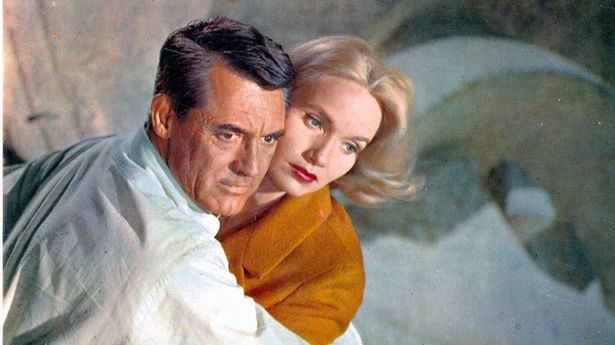He lit up the silver screen and enthralled a generation in films such as North by Northwest and Charade. But Cary Grant’s life as a Hollywood heartthrob was a million miles away from his early life on the impoverished streets of Bristol.
And now national blue plaque will shine a light on the rags to riches story of Archie Leach – the boy who ran away from home at 14, joining an acrobatic troupe. Cary grew up in the Horfield area of Bristol to a working-class family. Born into extreme hardship in 1904, he was the only surviving child of an alcoholic father and over-protective mother with mental health issues.
He was 11 when his mother Elsie vanished, supposedly to a seaside resort, and his father, Elias, moved across Britain to start a new family with another woman. It would be another 20 years before he discovered his mother was alive – placed in the Bristol Lunatic Asylum on his father’s orders. In the meantime he learned to stilt walk and toured with a stage troupe after he was expelled from school at 14.
Grant first reached the US in 1920 as the troupe embarked on a successful vaudeville tour. When he was just 17, he opted to stay behind after the tour finished to try his luck. It was then that Grant struck gold. A romantic lead in the 1931 Broadway musical Nikki got him noticed in Hollywood, and after a screen test he signed a five-year contract with Paramount Pictures.
With his signature tan, suave and sophisticated style, he went on to become the consummate leading man who symbolised the authentic American hero. A box-office favourite, Grant starred alongside Hollywood’s leading ladies from the 1930s to the 1960s, including, Ingrid Bergman, Grace Kelly, Marilyn Monroe, Eva Marie Saint, Jean Harlow and Audrey Hepburn.
He established himself as a master of screwball comedy, a romantic lead and a box-office favourite who could command some of the highest fees. But despite his fame, the star never forgot his Bristol roots. It was not until he was 31 as his father lay on his deathbed – that Cary learned the truth about his mother.
He visited the city regularly, returning to see Elsie, and happily posed for publicity photos in his native city. But, he was forever traumatised by his childhood and at the height of his fame in the late 1950s, turned to LSD therapy for help with huis mental health.
He tried hypnosis and yoga and felt that they both came up short. So he began dropping acid and claimed to have found inner peace. His recently discovered unpublished memoir, letters from his mother and never-before-seen home movie clips help tell the tragic tale.
Recounting his parents, he wrote: “Father was a tallish, handsome man with a fancy mustache. My mother was a delicate, dark-haired beauty.” Talking of his older brother John, who died before he was born, Grant said his mother “closed the door on his thumb. He developed gangrene and died. She never forgave herself.
He added: “My mother tried to smother me in care, she was over protective. She kept me in baby dresses. For a while I wasn’t sure if I was a boy or a girl. My father pressed suits in a clothing factory. He progressed too slowly for my mother’s dreams.
“The relationship between my mother and father grew unhappier. I came home from school one day and she was gone. My cousins told me she had gone to a seaside resort. I thought that was odd. But I accepted it was one of those things that adults do. I regularly haunted the Bristol wharfs and sat alone and contemplated. It gradually dawned on me that she was not coming back. She left a void in my life, a sadness of spirit that affected everything I did. I always felt my mother rejected me.”
The new blue plaque is being unveiled by Historic England at Grant’s childhood home of 50 Berkeley Road, Bishopston. He moved there when he was four and lived there until 1909 or 1910. Barbara Jaynes, Grant’s widow, said: “Cary often spoke fondly of his childhood in Bristol. He cherished the memories of his early years, and I can only imagine the joy he would have felt knowing that his roots would be commemorated in such a meaningful way.
“Cary’s charisma, talent, and charm captivated audiences worldwide, yet he always remained proud of his origins. He would have been delighted to see his childhood home recognised.”
Duncan Wilson, of Historic England, said: “Through this blue plaque we can physically celebrate this remarkable actor’s connection to Bristol.”
Cary died aged 82 in 1986.
